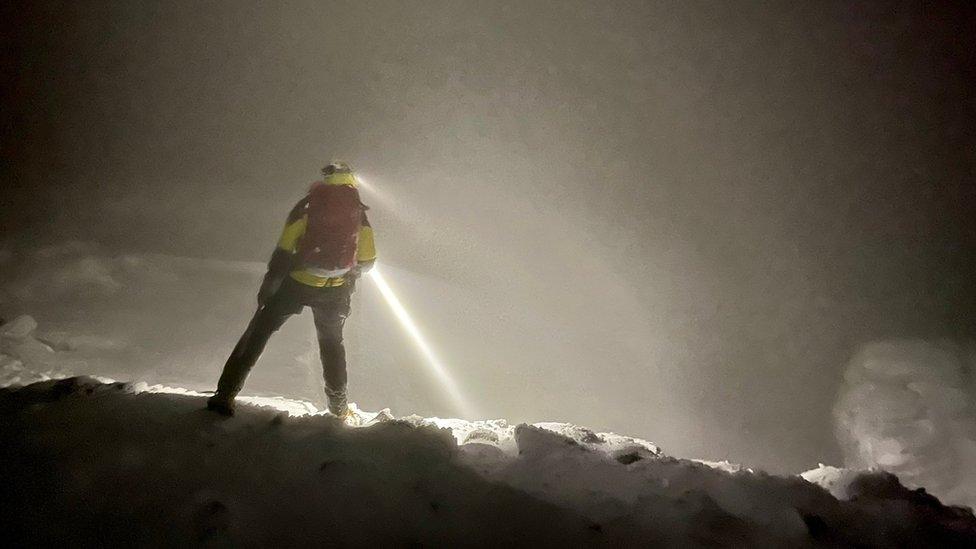Warning as winter rescues rise on Scotland's mountains
- Published
- comments
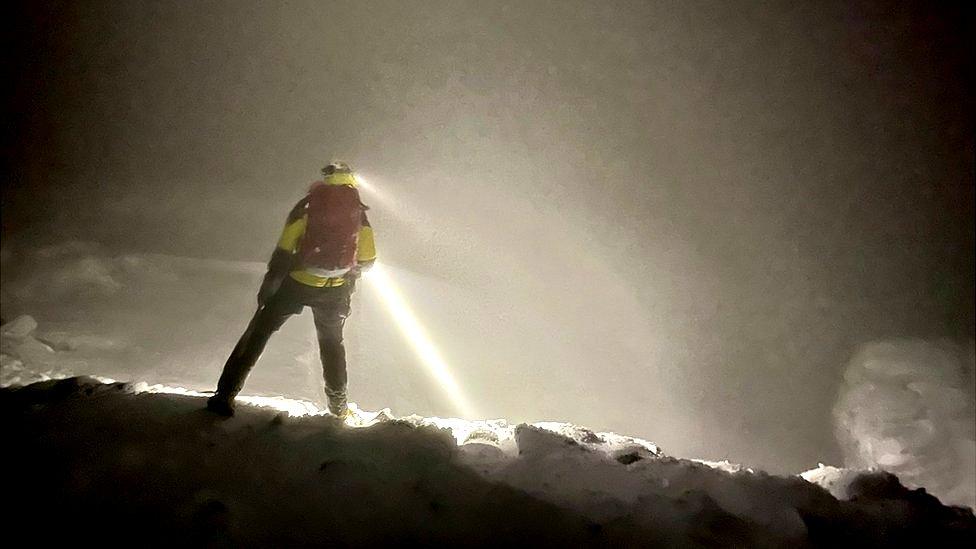
Cairngorm Mountain Rescue Team have attended a number of significant call-outs
Mountain rescuers have issued a warning to climbers after a series of winter incidents on Scotland's hills.
Volunteers faced a busy start to the season with two avalanches, medical deaths and "very challenging" rescues.
Matt Smith, Police Scotland's national lead for mountain rescue, said there were about 10 more rescues last month than the previous December.
"It's not so much the number. The severity of the rescue tends to be far greater in winter," he said.
"Even in the last week, volunteer teams have been out for a huge amount of hours overnight to bring people off the hills.
"Winter seasons are always quieter than summer ones, but for us we've seen a number of significant events."
In early December, rescuers searched avalanche debris on Ben Macdui in the Cairngorms following concerns casualties might be buried.
It involved Cairngorm and Braemar mountain rescue teams, a coastguard helicopter and Search and Rescue Dog Association.
Cairngorm Mountain Rescue Team was also called out to an avalanche at Central Gully in Coire an t-Sneachda.
A male climber sustained a lower leg injury and his climbing partner was uninjured.
Last week, another climber was stretchered off the same peak after becoming lost in blizzard conditions.
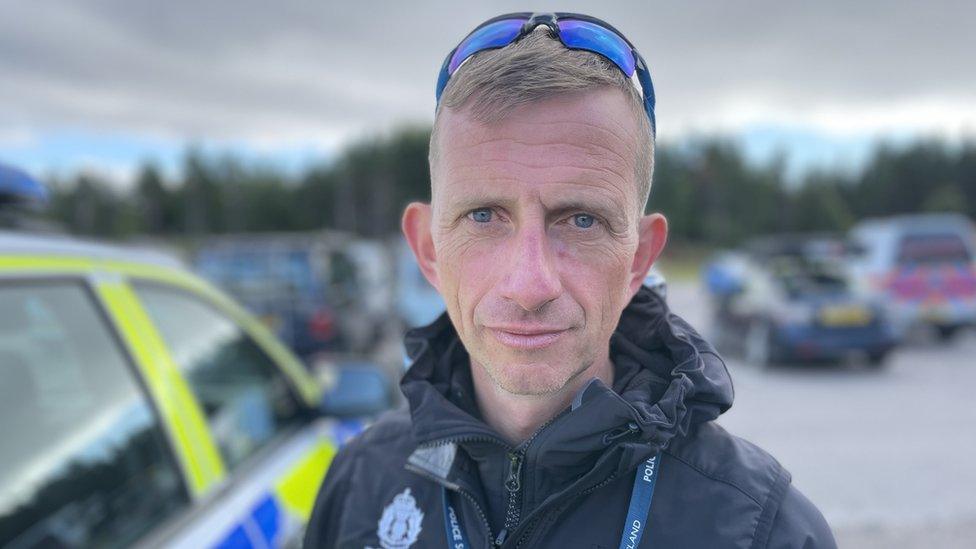
Matt Smith is Police Scotland's national lead for mountain rescue
Mr Smith said the extremes of weather and lack of daylight hampers rescue efforts and "make things really difficult".
He added: "What the teams come up against is exactly what walkers or people that are venturing out will come up against.
"Mountain rescue teams have had to deploy in very challenging conditions, for long periods of time, to help people that have become injured or lost, or needed help.
"They face some really long, dark, cold nights to get these people off the hills".
A lost Cairngorms climber has been stretchered to safety amid blizzard conditions
In 2022, there were 636 incidents and 843 call-outs on Scotland's mountains, according to Scottish Mountain Rescue, external.
In total, 330 of these involved mountaineering and 306 were non-mountaineering incidents.
An incident is defined as a single event that required a rescue team. This could involve several call-outs of a team during a prolonged search.
"The rescue teams in Scotland are incredible, the level of dedication and professionalism, it's just second to none," said Mr Smith.
"They are there to help people, but it doesn't mean that it's easy, and it doesn't mean that necessarily it's enjoyable to go out into the wilds and extremes.
"Lots more people will be venturing because we've seen a huge increase across the summer, so they will be tempted to do so in winter.
"But they need to understand the consequences are far greater."
Related topics
- Published31 December 2023
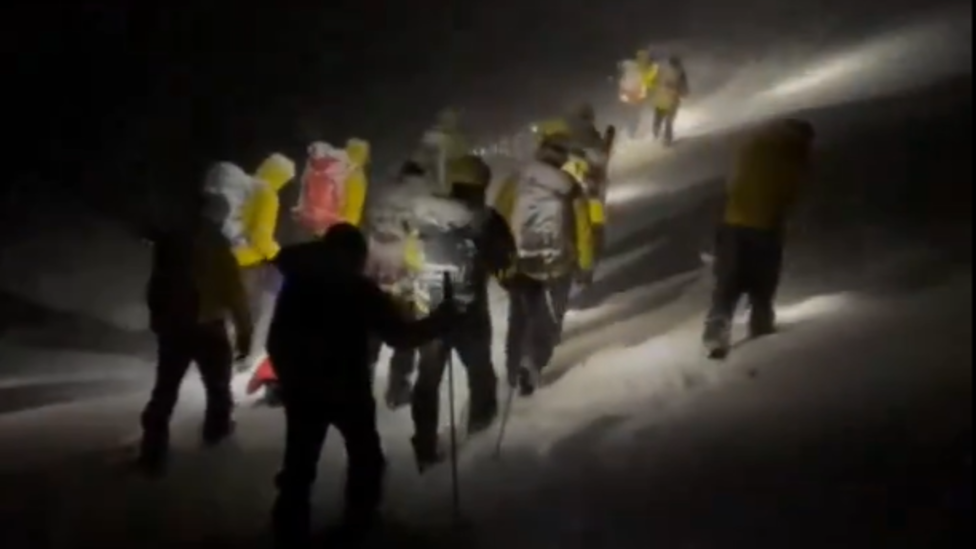
- Published22 September 2023
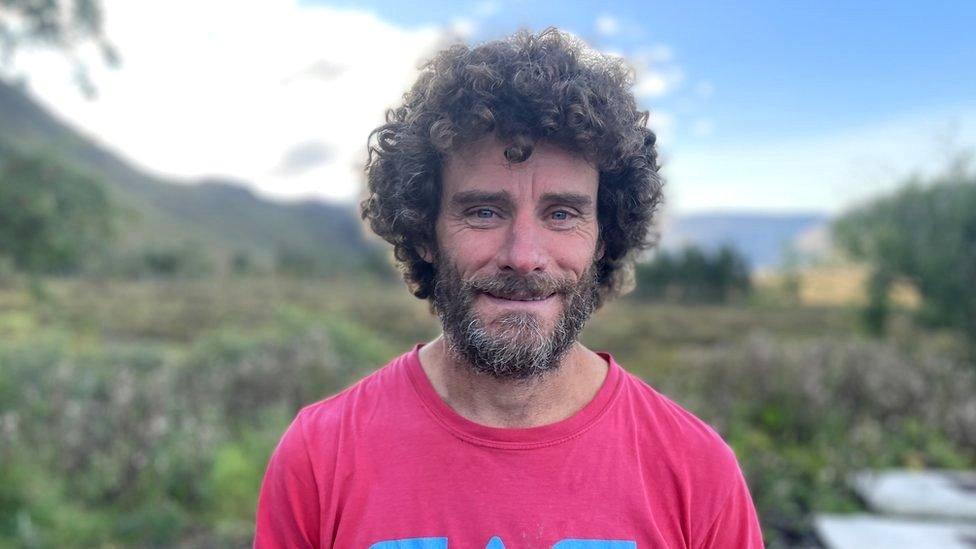
- Published23 February 2023
